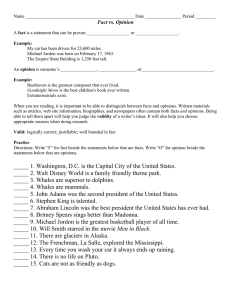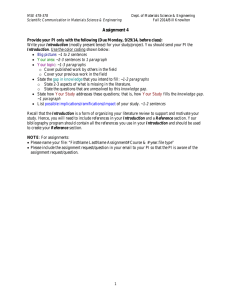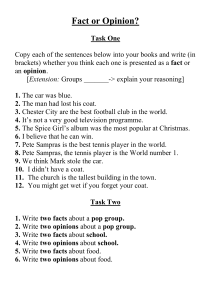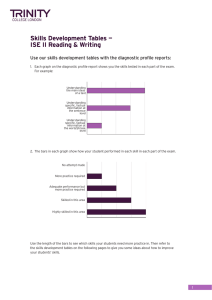S3 Language Objectives
advertisement
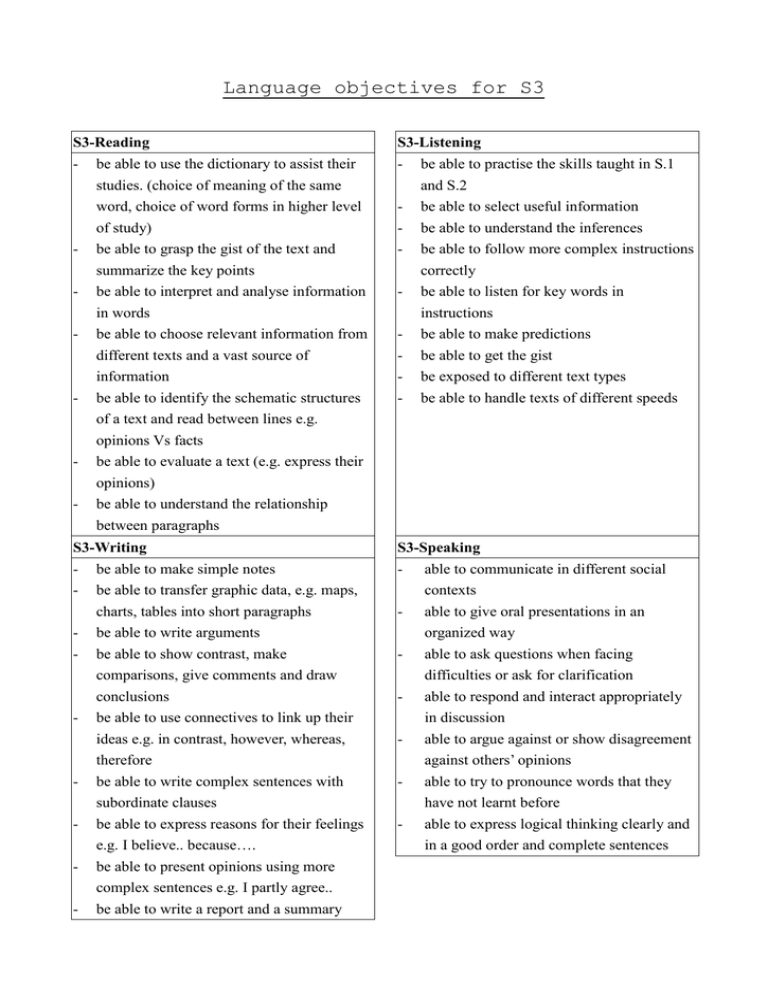
Language objectives for S3 S3-Reading S3-Listening - - - - - be able to use the dictionary to assist their studies. (choice of meaning of the same word, choice of word forms in higher level of study) be able to grasp the gist of the text and summarize the key points be able to interpret and analyse information in words be able to choose relevant information from different texts and a vast source of information be able to identify the schematic structures of a text and read between lines e.g. opinions Vs facts be able to evaluate a text (e.g. express their opinions) be able to understand the relationship - be able to practise the skills taught in S.1 and S.2 be able to select useful information be able to understand the inferences be able to follow more complex instructions correctly be able to listen for key words in - instructions be able to make predictions be able to get the gist be exposed to different text types be able to handle texts of different speeds - between paragraphs S3-Writing S3-Speaking - be able to make simple notes be able to transfer graphic data, e.g. maps, charts, tables into short paragraphs be able to write arguments be able to show contrast, make comparisons, give comments and draw conclusions be able to use connectives to link up their - ideas e.g. in contrast, however, whereas, therefore be able to write complex sentences with subordinate clauses be able to express reasons for their feelings e.g. I believe.. because…. be able to present opinions using more complex sentences e.g. I partly agree.. be able to write a report and a summary - - - - - - able to communicate in different social contexts able to give oral presentations in an organized way able to ask questions when facing difficulties or ask for clarification able to respond and interact appropriately in discussion able to argue against or show disagreement against others’ opinions able to try to pronounce words that they have not learnt before able to express logical thinking clearly and in a good order and complete sentences
